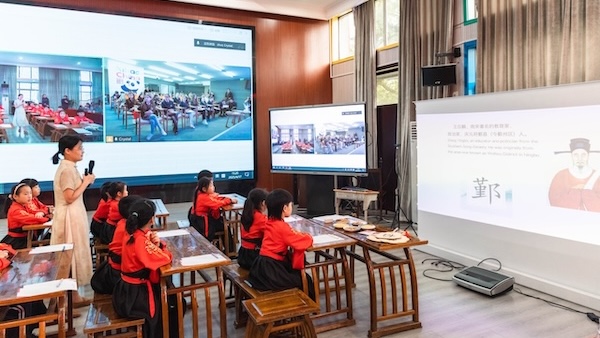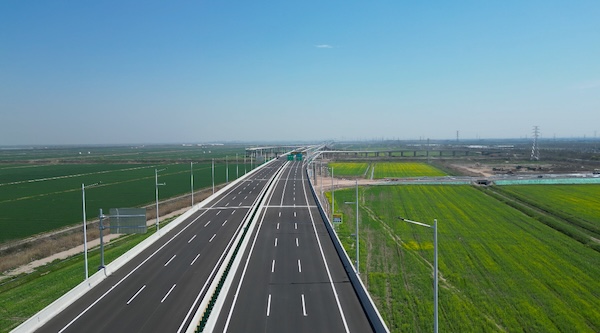Cixi establishes 19 smart health stations for the elderly

The clinic doctor takes the temperature of an elderly resident. [Photo/Ningbo Daily]
Cixi, a county-level city in Ningbo, Zhejiang province, has rolled out 19 smart health stations for the elderly in 17 towns and subdistricts as part of its efforts to enhance healthcare services at the grassroots level.
The smart stations provide one-stop services for health monitoring, including blood pressure, blood sugar, and BMI (Body Mass Index) checks. Residents can insert their ID cards into the machines, select the desired test items, and complete the entire process in less than 10 minutes. The results are then added to their electronic health records. These stations allow Cixi residents to enjoy smart self-service health services right at their doorstep.
Yu Guoqiang, a 78-year-old chronic disease patient, experienced the smart self-service health check at the Tanheyan Village Clinic. He said that he used to need assistance from his children to conduct these checks at home, but now he can easily access them at the smart station near his home.
Each smart station, covering an area of over 6 square meters, is equipped with health assessment machines, remote blood pressure monitors, oxygen generators, and other essential devices. They also have information systems such as computers, printers, and networks, ensuring seamless connectivity with public health services, family doctor sign-up services, and hospital management systems.
"The detection data from the machines, operated by the elderly under the guidance of doctors, is transmitted to the relevant systems. Doctors can then follow up on their services based on the test reports," said the head of the Baishalu Subdistrict Community Health Service Center, which has also established a smart station.
In recent years, Cixi has improved its grassroots medical services by establishing 308 standardized village clinics and formulating a list of basic medical and healthcare services. The city plans to build an additional 19 smart stations in 2025, aiming to provide better healthcare services to more elderly residents.

 Ningbo seabird project seeks international volunteers
Ningbo seabird project seeks international volunteers  Jakub's journey: From shipyard to sea
Jakub's journey: From shipyard to sea  Badminton Asia COO applauds Ningbo
Badminton Asia COO applauds Ningbo 


